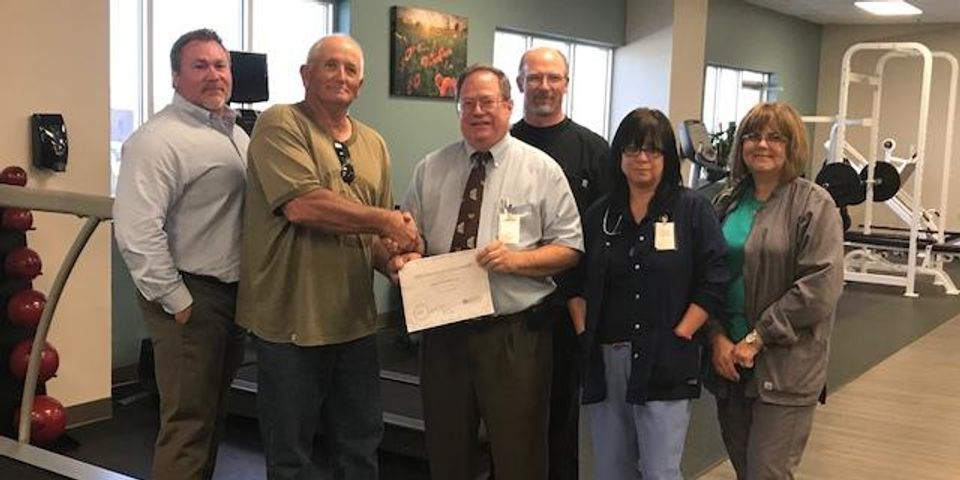
Coryell Memorial Pulmonary Rehabilitation graduated the first patient on Tuesday.
Odell Patterson, 64, was in the military as well as a truck driver and a lifelong smoker. Even after he quit smoking, he became progressively more short of breath and struggled with daily activity. This drove him to seek treatment. When Mr. Patterson was diagnosed with chronic obstructive pulmonary disease (COPD), his primary care physician, Dr. Adrian Dirk, recommended that he start the new Pulmonary Rehabilitation Program at Coryell Memorial Healthcare System. “I wanted to start living again. I had no energy, and now I can work in my lawn business an hour or two before I need to take a break. At first I would be tired after I left therapy, but now I feel great, I’ve got my life back,” said Mr. Patterson.
Pulmonary Rehabilitation is a program of exercise, education, and support for persons with lung disease. The goal is to help these patients learn to breathe—and function—at the highest level possible.
At pulmonary rehabilitation patients work with a team of specialists who will help them improve their physical condition. They also learn how to manage their COPD to stay healthy and active long after they complete the course.
“Pulmonary rehabilitation is a multi-disciplinary program and should be included in the overall management of patients with respiratory disease. The respiratory therapist, by
specialized education and expertise, is uniquely qualified to function as the leader of a successful Pulmonary Rehabilitation Program. At Coryell Memorial we take a team approach that includes physical therapy, education, and nutritional services with oversight from our Pulmonologist” said Paul Rambeau RRT-NPS, Director Respiratory Care at Coryell Memorial Healthcare System.
To qualify for pulmonary rehabilitation, patients must be referred by their doctor and have pulmonary function test results within the past year that shows COPD. At pulmonary rehabilitation, patients learn about: breathing techniques, medications, nutrition, relaxation, oxygen use and traveling with a pulmonary disease. Patients will learn how to perform everyday tasks with less shortness of breath. They will also learn how to stay healthy and avoid COPD exacerbations. Coping skills to help deal with changes that often come with COPD such as depression, panic, anxiety, and others are taught. The pulmonary rehabilitation participant will meet people with COPD who have many of the same experiences, questions and feelings.
If you would like to find out more about the Pulmonary Rehab Program or other services at Coryell Memorial, including physical therapy, sports medicine and orthopedics visit our website at www.cmhos.org or call 254-865-2166.
About the Business
Have a question? Ask the experts!
Send your question

